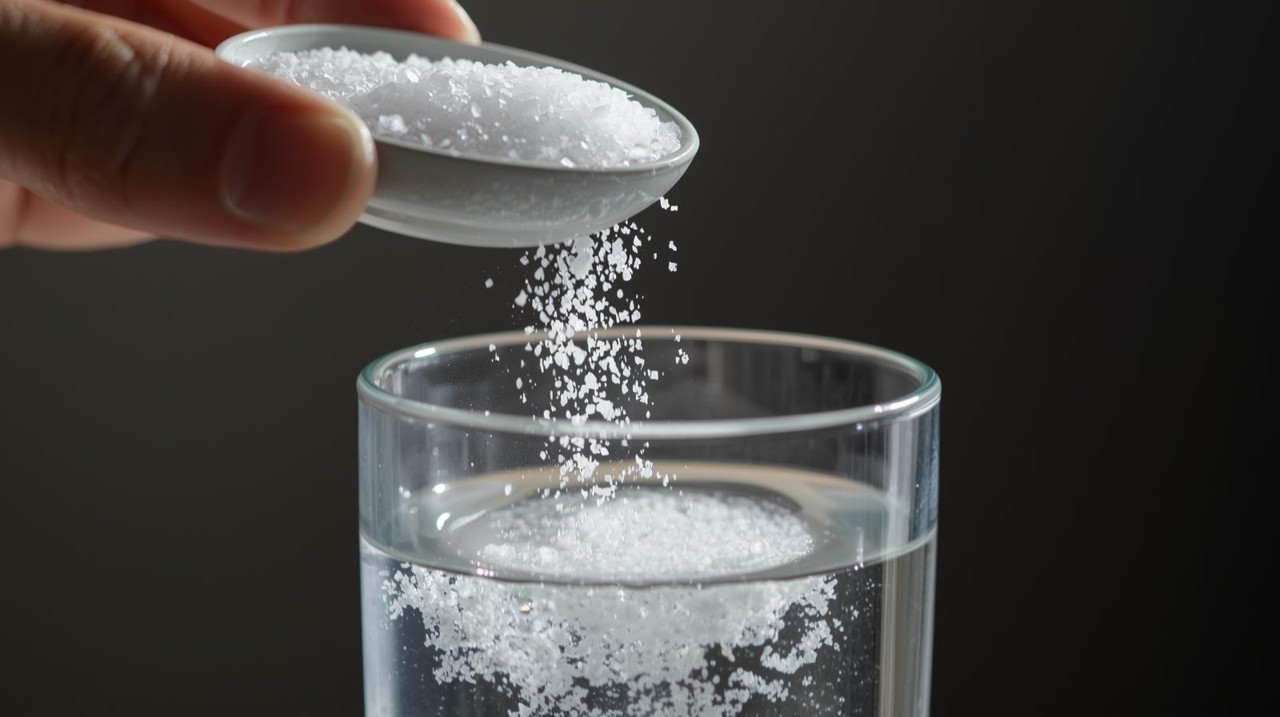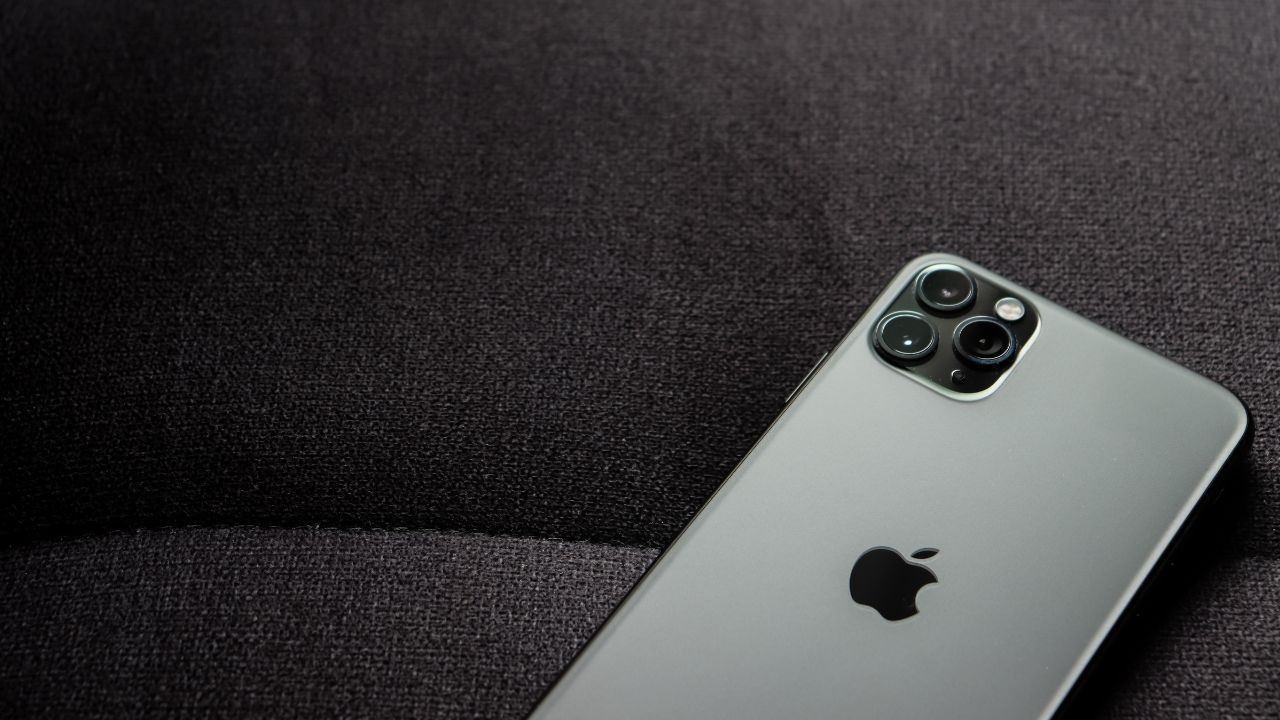
Post by : Sam Jeet Rahman
When it comes to staying hydrated, most of us immediately think of drinking more water. But what if the secret to better hydration isn’t just about how much water you drink — but what’s in that water? Surprisingly, adding a pinch of salt could be the missing piece your body needs to stay properly hydrated.
Yes, you read that right. While salt often gets a bad reputation for contributing to high blood pressure or bloating, in moderation, it plays a crucial role in maintaining hydration levels, energy, and even brain function. Let’s explore why electrolytes like sodium are vital for your body — and how adding the right amount of salt can help you stay hydrated longer and feel better overall.
Hydration isn’t just about water intake — it’s about how well your body retains and uses that water. Every cell in your body needs fluids to function, but water alone isn’t always enough.
When you sweat, exercise, or even breathe, your body loses both water and electrolytes — minerals like sodium, potassium, magnesium, and chloride. These electrolytes help regulate nerve signals, muscle contractions, and fluid balance.
If you replace only the water and not the electrolytes, your body can become out of balance, leading to hyponatremia (low sodium levels), which can cause fatigue, confusion, or even dizziness.
That’s why proper hydration means replenishing both water and electrolytes — not just drinking gallons of plain water.
Salt (sodium chloride) is your body’s primary electrolyte. Sodium helps maintain the osmotic balance of fluids in and out of cells — meaning it keeps the right amount of water inside your tissues.
Here’s how salt improves hydration:
It helps your body absorb water more effectively.
It prevents excessive water loss through sweat or urine.
It balances fluid levels between blood and tissues.
It supports muscle and nerve function during workouts or hot weather.
Without enough sodium, water passes through your body quickly without being properly absorbed — leaving you feeling tired, lightheaded, or even more dehydrated.
You’ve probably heard that you should drink “eight glasses of water a day,” but that’s not always the full story.
When you drink too much plain water, especially during intense exercise or high heat, your blood sodium levels can dilute. This causes your body to flush out electrolytes faster than it can replace them, leading to symptoms of overhydration, such as:
Muscle cramps
Headaches
Fatigue
Nausea
Mental fog
This is why athletes and outdoor workers often rely on electrolyte drinks instead of plain water — because hydration depends on balance, not just volume.
Adding a pinch of salt to your water can improve your hydration in several key ways:
The sodium in salt helps your intestines absorb water more efficiently. When you add a small amount of salt to your drink, it encourages your body to retain and use the water instead of excreting it right away.
During workouts or hot weather, you lose sodium through sweat. Replacing it with a pinch of salt in your water helps you restore electrolyte balance and avoid muscle cramps or exhaustion.
If you’ve ever felt tired even after drinking lots of water, it’s likely because your electrolyte levels dropped. Adding a bit of salt keeps your sodium levels steady, which helps maintain your energy and focus.
Sodium plays a role in maintaining blood pressure and muscle contractions. Without enough of it, you may experience weakness, irregular heartbeat, or cramping — all signs of poor hydration.
Now before you grab your salt shaker and start pouring, let’s be clear — a little goes a long way. You don’t need to drink salty water like seawater (which is dangerously high in sodium).
Here’s the proper way to add salt for better hydration:
Add a pinch (about 1/8 teaspoon) of sea salt or Himalayan pink salt to one liter (4 cups) of water.
Mix it well until fully dissolved.
Optionally, add a squeeze of lemon juice or a teaspoon of honey for taste and extra electrolytes.
This simple mix is often referred to as homemade electrolyte water or “sole water.” It’s a natural, inexpensive alternative to commercial sports drinks, which can be loaded with sugar and artificial flavors.
Not all salts are created equal. The type of salt you use makes a difference.
Table Salt: Refined and often stripped of trace minerals. It may contain additives like anti-caking agents.
Sea Salt: Contains natural trace minerals such as magnesium, potassium, and calcium, which enhance its electrolyte profile.
Himalayan Pink Salt: Rich in over 80 trace minerals, it offers a slightly lower sodium concentration but higher overall nutritional value.
For hydration purposes, Himalayan salt or unrefined sea salt is the better choice.
Adding salt to your water isn’t something you need every time you drink. But there are specific times when it can be especially beneficial:
After Exercise: Replenish lost electrolytes and prevent post-workout fatigue.
During Hot Weather: Helps prevent dehydration when sweating heavily.
In the Morning: A glass of warm salt water (with lemon) can help balance fluids and kick-start metabolism.
After Illness or Diarrhea: Replaces lost minerals to support faster recovery.
During Travel: Prevents dehydration from air conditioning and long flights.
Always listen to your body — if you’re sweating more, you likely need more electrolytes.
Low sodium levels are less common than excessive intake, but they can occur in active individuals or those on restrictive diets.
Common signs of low sodium (hyponatremia) include:
Dizziness or headaches
Fatigue or muscle cramps
Nausea or confusion
Feeling weak even after eating or hydrating
If these symptoms sound familiar, your body may be telling you it needs more electrolyte support, not just more water.
Absolutely — balance is key.
Consuming too much sodium (especially from processed foods) can lead to high blood pressure, water retention, and other cardiovascular issues.
The recommended daily sodium intake is around 2,300 mg (roughly one teaspoon of salt) for adults. However, if you’re physically active or live in a hot climate, your needs may be slightly higher.
Remember, we’re talking about natural salts in small amounts, not excessive use.
While sodium is the most important electrolyte for hydration, it works best when balanced with others:
Potassium: Found in bananas, avocados, and coconut water; it helps regulate heartbeat and nerve function.
Magnesium: Aids in muscle relaxation and prevents cramps.
Calcium: Supports bone health and nerve signaling.
A balanced electrolyte mix ensures that your hydration strategy supports overall wellness, not just fluid balance.
Adding a pinch of salt to your hydration routine offers more benefits than just quenching thirst.
Here’s what you can expect when your body stays properly hydrated:
Improved energy and focus throughout the day.
Better workout performance and faster recovery.
Reduced muscle cramps and fatigue.
Stable mood and reduced stress.
Healthier skin and improved digestion.
Hydration affects everything — from your mental clarity to your physical endurance.
For years, salt has been seen as something to avoid — but like many things in health, it’s all about balance and context.
When used wisely, salt is not the enemy — it’s an essential mineral your body needs to function at its best. By adding just a small pinch to your water, you can enhance hydration, support energy levels, and keep your body in balance, especially during times of stress or heat.
So next time you reach for a glass of water, consider giving your body what it really needs — water with electrolytes, not just plain H₂O.

IKEA India Leases 37K Sq Ft in Pune Mall for City Store
IKEA India secures 37,259 sq ft at Phoenix Marketcity, Pune, marking a key step in its city-store ex

UAE-Oman Rail Freight Service Set to Boost Regional Trade
Noatum Logistics and Hafeet Rail partner to start UAE-Oman rail freight, enhancing trade, supply cha

Kosovo President Meets Saudi Minister to Strengthen Ties
Kosovo President Vjosa Osmani met Saudi Minister Faisal Alibrahim to strengthen economic ties and ex

TV Star Paridhi Sharma Enters Films with Controversial Haq
Paridhi Sharma marks her film debut with Haq inspired by the Shah Bano case while facing legal hurdl

ChatGPT Voice Mode Set for Major Upgrades This Month
ChatGPT voice mode gets real-time transcripts, mute/unmute options, rich content, and direct messagi

Doncic Scores 49 as Lakers Beat Timberwolves 128-110
Luka Doncic scores 49 points, Lakers shoot 59% to beat Timberwolves 128-110; Austin Reaves, Rui Hach

iOS 26 Adaptive Power iPhones Get Longer Battery Life
iOS 26 brings Adaptive Power to iPhones, extending battery life intelligently without affecting perf

Doncic Scores 49 as Lakers Beat Timberwolves 128-110
Luka Doncic scores 49 points, Lakers shoot 59% to beat Timberwolves 128-110; Austin Reaves, Rui Hach

Sacramento Kings Beat Utah Jazz 105-104 with Late Sabonis Shot
Domantas Sabonis scores game-winner as Kings beat Jazz 105-104 in home opener, Zach LaVine and Malik

Messi’s Argentina Match in India Postponed, New Date Soon
Argentina’s friendly against India in Kochi is postponed due to FIFA approval delays; organizers wil

Rohit and Kohli End ODI Careers in Australia with Win
Rohit Sharma and Virat Kohli bid farewell to Australian ODIs after a final win, forming a 168-run un

George Russell Sneaks into Mexican GP Stands in Wrestling Mask
George Russell wore a Mexican wrestling mask to watch practice from the stands during the Mexican Gr

Dutch Cyclists Van de Wouw and Wiebes Win Second World Titles
Dutch riders Hetty van de Wouw and Lorena Wiebes win second world titles at UCI Track Cycling Champi

Williamson Returns to New Zealand Squad for ODI Series
Former captain Kane Williamson returns for ODIs against England, balancing family, pro leagues, and

Services Bowlers Make History With Two Hat-Tricks in Assam
Services bowlers Arjun Sharma and Mohit Jangra achieved two hat-tricks in Assam’s Ranji Trophy match